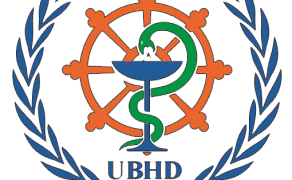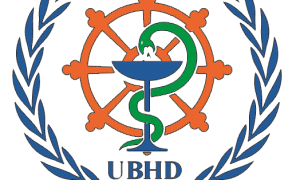The omicron version of the infection has been registered in our country, the number of infections has increased after the new year, and the workload of hospitals has increased dramatically. Therefore, work is underway to include citizens in the 4th dose of immunization. We talked about this with B.Byambadorj, the head of the Capital City Health Department.
-Due to the newly registered omicron version, the workload of the health sector is increasing not only in the capital city but also in the whole country. Please provide information on hospital workload and infection prevention?
-Two things are very important in the response to communicable diseases. First, specific prevention or immunization. Vaccination against Covid-19 infection started on February 23, 2021 in Ulaanbaatar. In the past, immunization has been implemented in stages, and as of today, 50.8 percent of Ulaanbaatar residents have been covered by the third dose, while 25,881 people or 2.7 percent have been covered by the fourth dose. The Minister of Health issued an order on January 7 to include citizens in the fourth dose. In the 10 days since the order was issued, 2.7 percent of the population has been vaccinated, which means that people are actively involved. The incidence of infection in the population is low among vaccinated individuals.
Second, it is important to reduce the movement of people during communicable diseases, to keep distance between people, to avoid contact with infected people, and to prevent infected people from infecting others. But during the New Year, this regime was lost. As a result, the number of infections has risen sharply since the beginning of the second week of January 2022. Omicron coronavirus was also diagnosed in infected individuals. The omicron version has a higher infectivity than other forms of the previous outbreak virus. Infection of the delta and alpha versions was transmitted by airborne droplets, while the omicron version was transmitted by air as an aerosol. So the infection is spreading very fast. In the last two weeks, physicians who observed the morbidity of infected people reported mild morbidity, low incidence of pneumonia, and short duration of infection, but a sharp increase in the number of infected people. and people with pneumonia. Even when they are hospitalized, there is a risk that their days will be longer than before.
-Citizens are vaccinated against coronavirus on a voluntary basis. Has it been decided to include some of the target group in the additional IV dose on medical grounds to prevent the disease?
-Additional III and IV doses are covered on a voluntary basis. However, international studies have shown that the omicron variant infection is associated with a higher risk in patients with chronic disease, pneumonia, and inflammatory bowel disease. Therefore, these people are included in the 4th dose to prevent risks. According to the order of the Minister of Health, the fourth dose will be given three months after the third dose, and three months after the onset of coccidiosis.
-There are many people who do not know where the vaccination points are located. Where to apply for IV dose?
-Vaccination has been carried out in all FGPs of the capital city for more than the last quarter. Immunizations are being provided at the Citizens' Hall and Family Health Center of the khoroo. Immunization teams are also working in major shopping malls. One shopping center was selected in each district and a temporary immunization point was opened. In addition, organizations with more than 100 employees can order and receive additional doses of vaccine at the organization.
-How much is the workload of FGPs and hospitals increasing due to the rapid spread of the new version of the infection?
-In addition to the response to covid infection, the Ulaanbaatar health sector is providing basic care to 1.6 million Ulaanbaatar residents. Therefore, the workload of medical staff is huge. This situation did not last for a month, but lasted for about a year, leading to a shortage of human resources and the exhaustion of medical staff. Although efforts are being made to rehabilitate people and upgrade some equipment between waves, the shortage of human resources continues. Last Friday, the Minister of Health issued an order allocating 469 resident doctors to work in the city's family and district health centers, but only 60 percent of them are working. The remaining 40 percent do not come at all. As a result, hospitals did not have access to the planned benefits. As the number of infections increases, additional teams are formed. Click on the capital city









